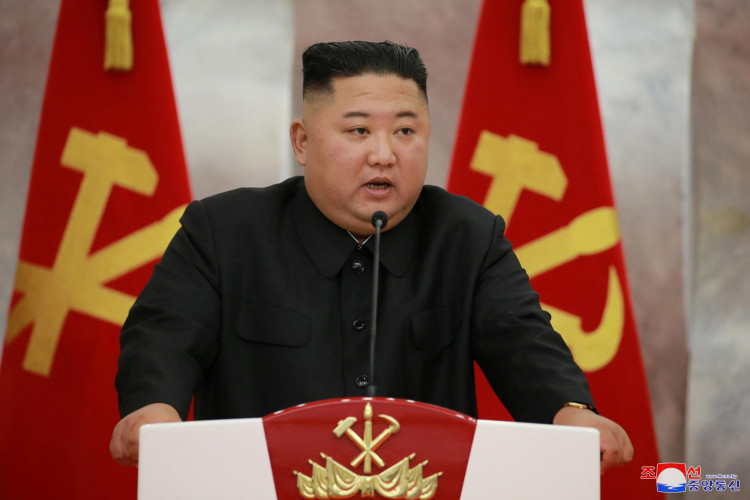Kim Jong Un, the North Korean supreme leader, said the hard-won nuclear weapons of his nation had been a strong security guarantee and a powerful deterrent that could prevent the North and its neighbor South Korea from engaging in a second war, state media announced Tuesday.
Kim's remarks to war veterans during the commemoration of the country's 67th anniversary of the end of the 1950-1953 Korean War demonstrates once again that he has no plans of dismantling his deadly arsenal as prospects for the resumption of diplomatic ties with the U.S. fade.
Kim pointed out that there will be no more war as the North's nuclear inventory guarantees their safety despite mounting external pressure and threats, state media disclosed. The nation developed its nuclear weapons program to gain "absolute strength" to fend off another military showdown, Kim said in a statement carried by the KCNA, underscoring the defensive posture of the program.
The North has been adamant and insists that it needs its nuclear weapons to deter against a possible American invasion. It has for decades framed its determination to develop nuclear weapons as mainly defensive and intended to prevent attempts at regime change.
Pyongyang has spent many years enhancing its nuclear capability and has been isolated from the international community because of that. North Korea has been subjected to multiple sanctions by the United Nations Security Council over its banned nuclear weapons program.
Inter-Korean relations have also been in a stalemate for many months, following the disintegration of a summit in Vietnam between Kim and U.S. President Donald Trump in 2019. That nuclear negotiation sank on what Pyongyang would be willing to abandon in exchange for a loosening of sanctions. Kim and Trump met for the first time in 2018 in Singapore, raising optimism an agreement could be reached that North Korea would end its nuclear threats.
Despite its deterrence stance, some experts claim nuclear weapons will only embolden the North, allowing Kim's regime to adopt a more hostile policy while disallowing adversaries from responding to low-level belligerence. Kim declared in December an end to a prohibition on its ballistic missile tests, with Pyongyang stressing it had no plan to continue talks unless Washington stops what the Kim regime describes as hostile policies toward the North.
Pyongyang has previously escalated its scorching rhetoric or carried out weapons tests to wrest external concessions. Some experts noted that the hermit state will likely steer away from serious discussions with the U.S. before its presidential elections in November, as a change in leadership in the country might take place.






